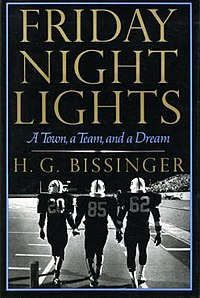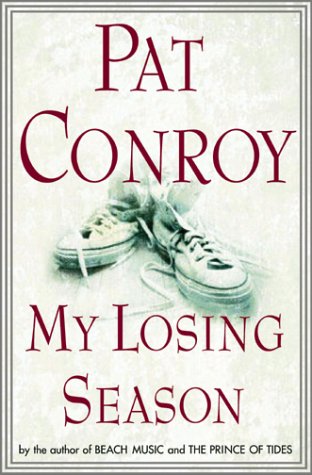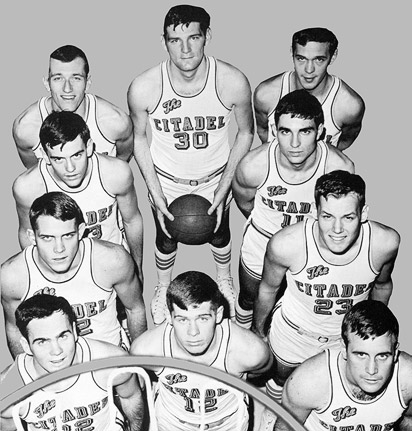Friday Night Lights - H.G. Bissinger
 Before the movie (2004) and the TV series (2006), there was the 1990 book that covered the Permian Panthers' 1988 season. Author Buzz Bissinger, a sports reporter and Pulitzer Prize winner, took a leave of absence from the Philadelphia Inquirer to spend the football season in Odessa, Texas, quietly making notes about the coach, players, high school, and community he features in this brilliant piece of reportage. Football fans will love the book; Bissinger is brilliant at building suspense and describes games in such vivid detail you feel as though you're there watching the action. But the dare-I-say anthropological side of this provides an even more fascinating examination of the structure of Odessa, a small town plagued by poverty, a failing school system, and racism, and wholly devoted to Permian High School's football team. (Bissinger suggests that some members of the town attempt to use the team as panacea for what ails them.) The whole town turns out on Friday nights to watch the boys, who deal with more pressure than most adults, take on rival teams. At the time of the writing, the Panthers had the best record of any team in Texas. Young boys in the town idolize the players and hope to be like them someday, and scores of girls have their dreams shattered when they enter high school and don't make the cheerleading team. Some are consoled with the role of Pepette, meaning they are assigned a player for the season and must bring him gifts every Friday and decorate the exterior of his house to demonstrate Panther Pride. The coach, new to Odessa, is alternately lauded and slandered by the townspeople with each win or loss, and he knows that a single disappointing performance places his job in serious jeopardy. Most compelling to me were the portraits of each of the players. They are diverse and complex, some basking in their star status and others perplexed by it. They are ravaged by nerves. They are elated by victories. They are both the victims and the perpetrators of racism. One player, a true prodigy, has devoted his life to football and is being scouted by colleges with major programs until an injury sidelines him, potentially destroying the only future he has ever prepared for or imagined. Another player loves football but juggles practice and games with serious scholasticism, which the other players don't understand. One is ambiguous about football despite his obvious talent, believing that his identity as a Christian is more important. Bissinger investigates their dreams, fears, strengths, weaknesses, families, and friends with keen insight. The people in this book are real, and they feel like it.
Before the movie (2004) and the TV series (2006), there was the 1990 book that covered the Permian Panthers' 1988 season. Author Buzz Bissinger, a sports reporter and Pulitzer Prize winner, took a leave of absence from the Philadelphia Inquirer to spend the football season in Odessa, Texas, quietly making notes about the coach, players, high school, and community he features in this brilliant piece of reportage. Football fans will love the book; Bissinger is brilliant at building suspense and describes games in such vivid detail you feel as though you're there watching the action. But the dare-I-say anthropological side of this provides an even more fascinating examination of the structure of Odessa, a small town plagued by poverty, a failing school system, and racism, and wholly devoted to Permian High School's football team. (Bissinger suggests that some members of the town attempt to use the team as panacea for what ails them.) The whole town turns out on Friday nights to watch the boys, who deal with more pressure than most adults, take on rival teams. At the time of the writing, the Panthers had the best record of any team in Texas. Young boys in the town idolize the players and hope to be like them someday, and scores of girls have their dreams shattered when they enter high school and don't make the cheerleading team. Some are consoled with the role of Pepette, meaning they are assigned a player for the season and must bring him gifts every Friday and decorate the exterior of his house to demonstrate Panther Pride. The coach, new to Odessa, is alternately lauded and slandered by the townspeople with each win or loss, and he knows that a single disappointing performance places his job in serious jeopardy. Most compelling to me were the portraits of each of the players. They are diverse and complex, some basking in their star status and others perplexed by it. They are ravaged by nerves. They are elated by victories. They are both the victims and the perpetrators of racism. One player, a true prodigy, has devoted his life to football and is being scouted by colleges with major programs until an injury sidelines him, potentially destroying the only future he has ever prepared for or imagined. Another player loves football but juggles practice and games with serious scholasticism, which the other players don't understand. One is ambiguous about football despite his obvious talent, believing that his identity as a Christian is more important. Bissinger investigates their dreams, fears, strengths, weaknesses, families, and friends with keen insight. The people in this book are real, and they feel like it.I can't sit through a quarter of a football game without getting antsy, but I couldn't put this book down. It's a fascinating look at the way competition can bring out the best and worst in individuals and whole communities, and about the glory and devastation that can come from an unshakable faith in a single thing.
(For the record, I was hooked by the first season of the TV series as well, though was warned to stay away from further seasons to avoid disappointment.)
My Losing Season - Pat Conroy
 The idea of this book, about a college basketball team, would likely have repelled me had it not been written by Pat Conroy. I'd read everything else he'd written, and was anxious for more. All of Conroy's books are a mixture of autobiography and fiction, with more of the former than that latter, and I was intrigued to learn that this one was simply his own story with no attempt at disguising that fact. So I dove in, and was swept away immediately by the usual grace of Conroy's prose. He recaps his senior year at the Citadel, where he played point guard on the basketball team. The Bulldogs had, and continue to have, one of the worst records in NCAA history, and Conroy's senior year was no exception. It's unusual to read a book about a losing team. Most books and movies depict winning teams. Sometimes they lose the final game to offer a twist on the usual plot, but they tend to win more often. This adulation of winners is starkly absent from Conroy's book. The team loses again and again, and the players despair, work themselves into the ground, and eventually make peace with things in a way that felt incredibly authentic.
The idea of this book, about a college basketball team, would likely have repelled me had it not been written by Pat Conroy. I'd read everything else he'd written, and was anxious for more. All of Conroy's books are a mixture of autobiography and fiction, with more of the former than that latter, and I was intrigued to learn that this one was simply his own story with no attempt at disguising that fact. So I dove in, and was swept away immediately by the usual grace of Conroy's prose. He recaps his senior year at the Citadel, where he played point guard on the basketball team. The Bulldogs had, and continue to have, one of the worst records in NCAA history, and Conroy's senior year was no exception. It's unusual to read a book about a losing team. Most books and movies depict winning teams. Sometimes they lose the final game to offer a twist on the usual plot, but they tend to win more often. This adulation of winners is starkly absent from Conroy's book. The team loses again and again, and the players despair, work themselves into the ground, and eventually make peace with things in a way that felt incredibly authentic.The book is mostly about basketball, but Conroy's abusive father, with whom he reconciled much later in his life, plays a significant role, just as he does in Conroy's other books. He looms above his son and taunts him about his ineptitude on the court, harking back to his own days as a basketball player when he says he could have wiped the floor with Pat. The childhood beatings Pat suffered continue, even though he is an adult; his father consistently beats him up after games if he's disappointed in his performance, which is a conclusion he reaches again and again. Pat plays his best, aching for words of praise and apology that never come, and this is one of the biggest factors that continues to draw Pat into basketball even though the team continues to lose. Another important factor was the camaraderie he feels with his class- and teammates, who Conroy develops with his usual poignancy. His descriptions of games are riveting and suspenseful, too; just as in Friday Night Lights, I was amazed by the way a written description of a game could keep me on the edge of my seat until the final buzzer. This book is certainly heartbreaking, but when Conroy graduates and at last earns his freedom from his father and his family, it feels triumphant, too.
 |
| The team. Conroy is in the lower left corner. |
No comments:
Post a Comment